Let’s face it, cats are weird and do a lot of strange things that you can’t always get your head around; eating used and snotty tissues is one such strange habit. I have recent first-hand experience of this, as my cat hooked a lot of used tissue out of the waste basket in my office last week after I had a stinking cold.
As well as being annoyed that my cat was pulling the snotty tissues out of the waste basket, I was more disturbed when she started eating the used tissues!
Which made me wonder… Why does my cat like eating toilet paper?
To get to the bottom of this conundrum, I did a bit of research, chatted to a vet, and read some journals and here’s what I found about cats liking snotty tissues.
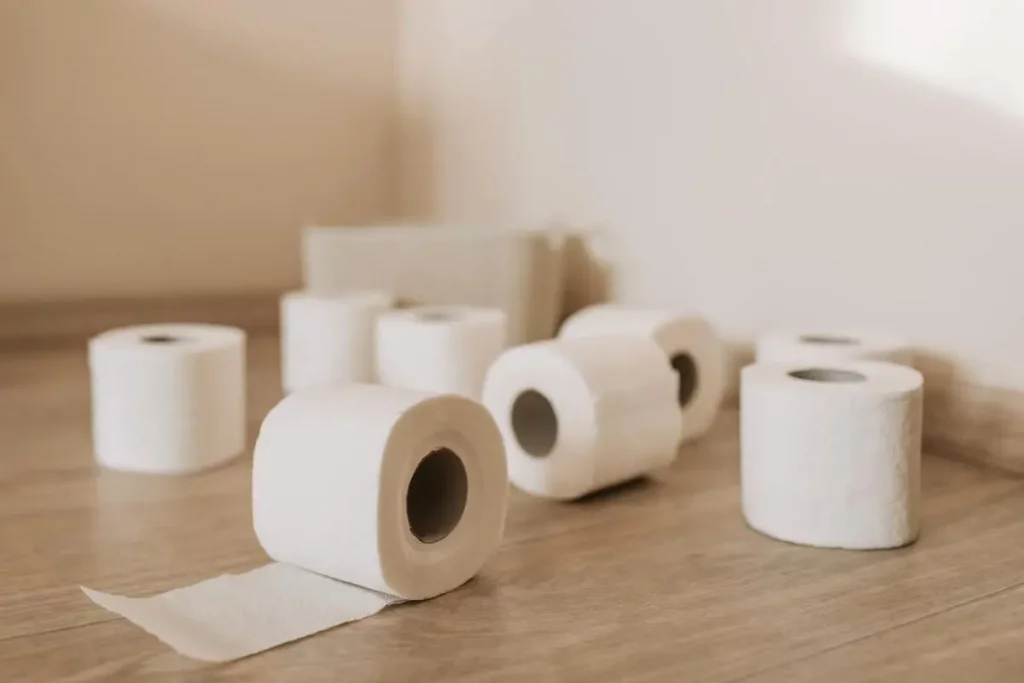
Why do cats like to eat toilet paper?
Why cats eat toilet paper is down to a number of reasons. I believe the most common reason for cats like tissue paper is due to instinct. Their ancestors would chase prey, pin it down with one paw, then tear it to shreds with the other before eating.
Toilet paper is great for playing this act out, as the texture and feel will appeal to cats who still have that hunting instinct in them.
Here is that reason, plus some more on why your cat likes to eat used toilet paper. You might find that one of these applies to the cat in your life!
1. Your cat likes eating tissues as it’s fun!
As I’ve already mentioned, my cat likes to eat tissue due to the old hunting instincts she still has. It’s also a whole lot of fun and appeals to her clown-like nature… as soon as she starts it I will try to grab if off her which makes the game even more appealing!
If you aren’t playing with your cat, chances are he or she will find a way to entertain themselves – and what better way to get the attention of their owning by ripping and chewing lots of snotty tissue paper to shreds!
2. Your cat has nothing else to do or is anxious
When cats are bored, anxious, or stressed, they will often be destructive. This can result in them chewing furniture, tissue paper, or in some extreme cases attempting to chew through walls.
The behavior is a cry for help and can often happen with a cat is left alone for long periods of time and develops separation anxiety, is worried or scared, or just feels bored with nothing to do.
3. Your kitten is in the teething phase
Chewing is something more commonly associated with kittens, and they like to eat non-food items to help soothe their sore gums and teeth. Typically the teething process will last no longer than 30 weeks of age.
If you have a wastepaper basket on floor level within easy reach of a kitty, then getting to those tissues is easy. Cats will hook them out and then start eating the used tissues due to how it feels on their gums.
To reduce the chewing of inanimate objects other than food you should have a supply of decent kitten teething toys to keep them occupied and away from all that snotty tissue.
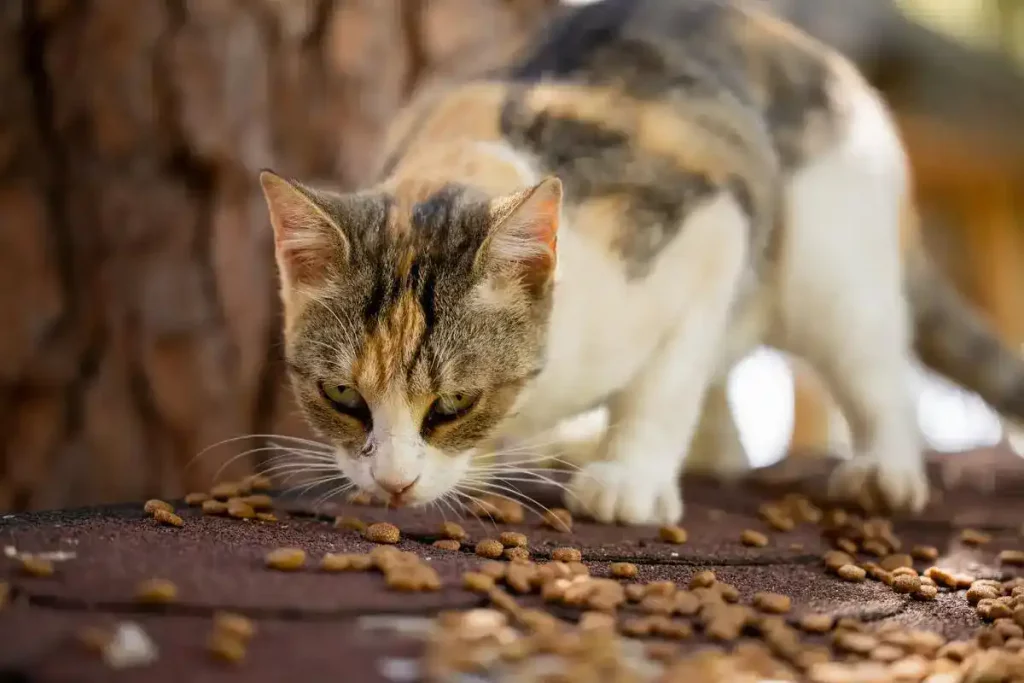
4. Your cat has pica
If you take your cat to vet about them liking to eat tissue, they might diagnose your cat with the pica condition. Pica affects cats and humans, and is described as being:
“Pica in cats is a condition where the animal feels compelled to eat objects that are not food items. These can include metal, plastic, cloth, garbage, dirt, rocks, paper, or even feces. Usually pica is a psychological, compulsive behavior issue for cats, but it may also result from medical issues or poor nutrition. It’s important to work on eliminating this behavior because ingesting foreign objects can lead to digestive system blockages, choking, poisoning, or other problems.” (view Source)
From my own research into pica, it’s a very common reasons for a cat and tissue paper consumption, and is said to be brought on by the following issues:
- Stress and anxiety.
- Hormonal imbalances.
- Nutritional deficiencies.
- Change in environment.
- Illnesses including diabetes.
- Possible mental health conditions.
If pica is diagnosed, then it’s not that easy to stop a cat eating tissue paper, particularly if you are unable to figure out what the cause is. It can be a wide range of issue, including:
“Pica in cats can include gastrointestinal disease, anemia, liver disease, pancreatic disease, diseases causing excess appetite such as diabetes, neurologic diseases, poor diet, being on medications such as prednisone, behavioral disorders such as anxiety, or a depraved home environment. Pica can even be a symptom of normal exploratory behavior.” (view Source)
As you can see, there’s a lot of reasons why it could be happening, so is best checked over by your vet for a professional analysis.
5. Your cat is quite simply hungry
The simplest explanation for why your cat eats tissue paper could be just down to them being hungry… or greedy!
If your cat is just about to go on a walk, you should not feed them but wait until afterwards. Your cat doesn’t understand why though and might take it upon herself to search out something to eat – and that could be just your used tissue papers!
Obviously, there are no calories in tissue paper, but once it chewed and eaten, it can clump in your cat’s stomach and give them the illusion that they are full.
Is it bad for cats to eat toilet paper?
Most of the time, toilet paper will break up and pass through, meaning eating tissue probably isn’t bad for cats to eat providing it doesn’t become a regular habit. Toilet paper will become small, moist, and should get through the digestive system without harming your cat.
However, it could harm a smaller cat, or even a bigger cat if they are eating tissue paper on a regular basis so it’s a habit you need to try and break for them.
Signs to look out for would be seeing tissue paper in their poop, and regular upset stomachs including vomit and diarrhea after eating tissue.
The bottom line is, much of it is down to size and regularity. For example, if you have a small cat who eats tissue on a daily basis, then yes, it’s most definitely bad.
Whether it was just a little used tissue paper or a lot, you should always consult with a vet if you’re concerned and your cat starts to act out of character.
Possible side effects
I’ve outlined some reasons why it’s bad for cats to eat tissue paper, but here’s a run-down of all those possible side effects in full – and when it is definitely time to call your vet.
- A lack of appetite
- Bloating
- Weight loss
- A severe sensitivity around the stomach area
- A rapid decline in health
- Constipation
- Lethargy
- Throwing up
- Diarrhoea
- Dehydration
The symptoms above are all indicators of a possible block in the cat’s intestines.
How do I get my cat to stop eating tissues?
If the cat and tissue paper issue has become problematic, you can take steps to get them to stop. Most cats think eating used tissues is a fun game, so an easy way is to invent a new game.
Here are my tips for prevention:
- Keep the bathroom door closed!
- Distract your cat with something else
- Keep your cat exercised
- Spend more time with your cat
- Get a vet to check for an underlying issue
Toys are fantastic for distraction, especially if the tissue eating is happening when you are not around. We will often fill a toy with xylitol-free peanut butter or treats as it keeps our cat occupied for ages – meaning she won’t have the inclination to tear up and eat snotty tissues!
Conclusion
Sometimes the most obvious reason is the answer to why your cat eats used tissue… because they can and it’s easily accessible! Cats are simple creatures at heart, and like to explore and have fun, and what can be more fun than tearing up tissue!
You can see some examples in the photos throughout this article of my own cat loving to do it!
However, it can be problematic and could harm your cat if it becomes regular so look out for any clear signs of an issue and try to replace the game with something different.
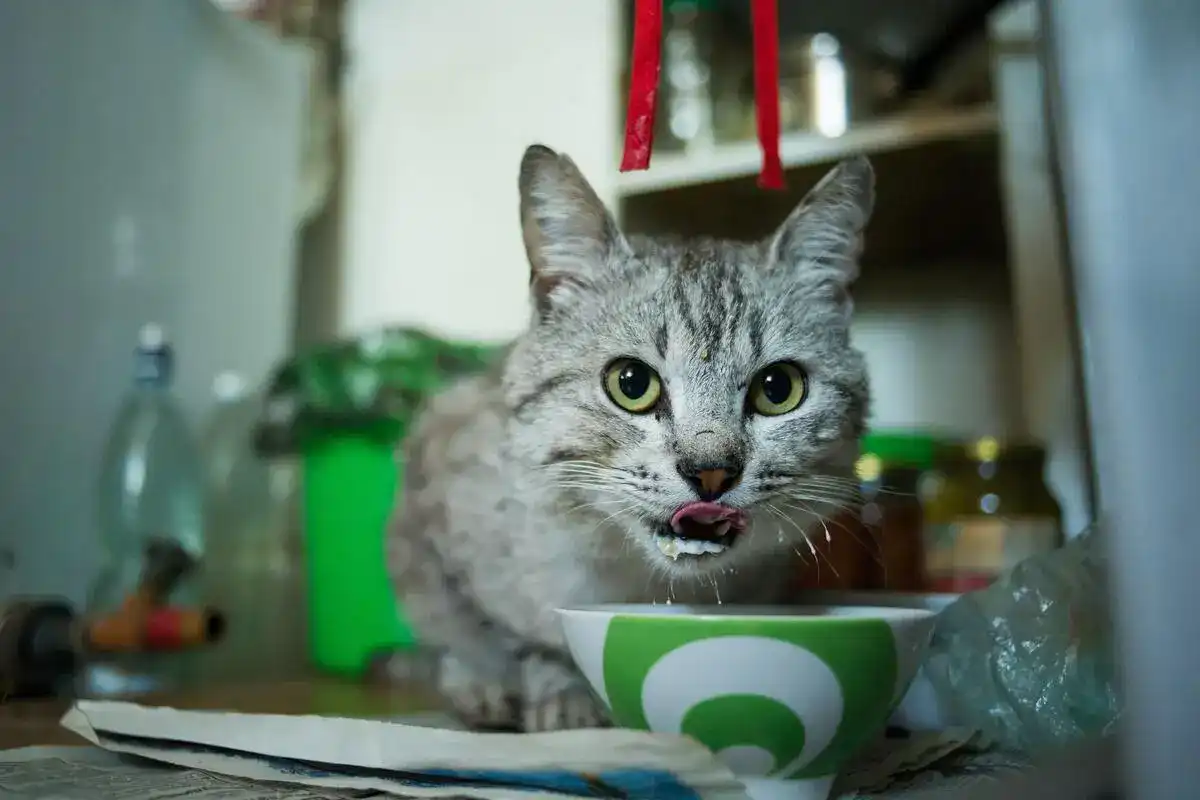
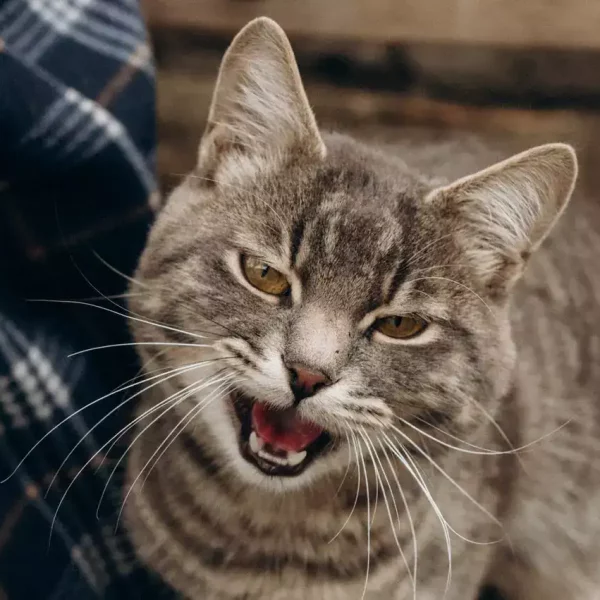
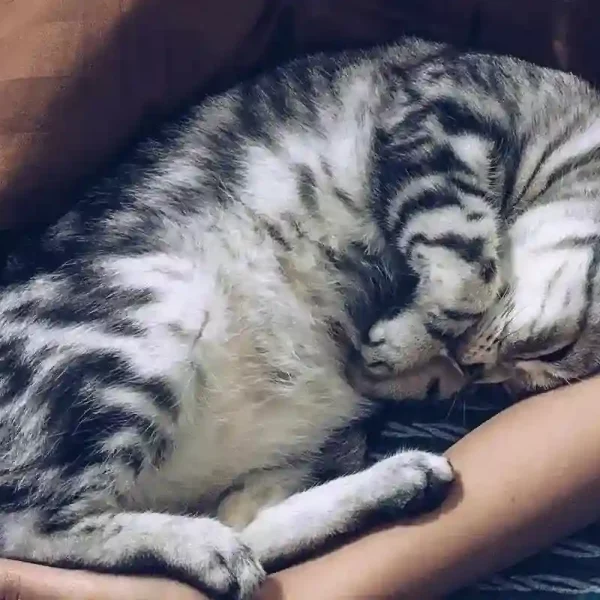
Leave a Comment